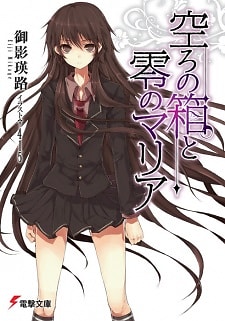Alternative TitlesSynonyms: HakoMari Japanese: 空ろの箱と零のマリア More titlesInformationType: Light Novel
Volumes: 7
Chapters: 40
Status: Finished
Published: Jan 10, 2009 to Jun 10, 2015
Serialization:
None Statistics Ranked: #582 2 based on the top manga page. Please note that 'R18+' titles are excluded. Popularity: #135
Members: 103,252
Favorites: 5,357 Resources | Recommendations
|

































